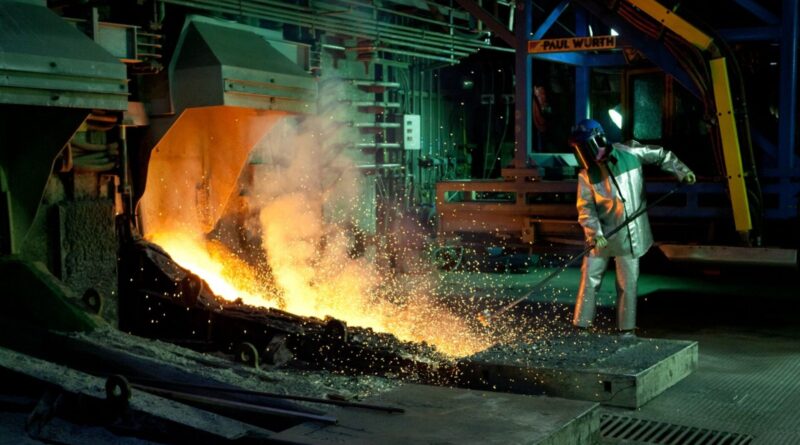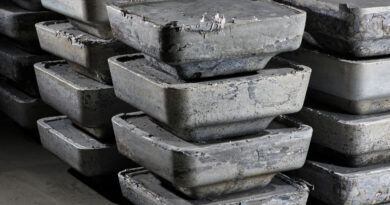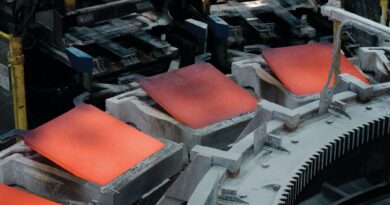Smelters supported by Queensland Government and Rio Tinto
MELBOURNE, Australia – The Queensland Government and Rio Tinto will work together to safeguard a pillar of the State’s heavy industrial manufacturing base around Gladstone under a partnership to support investment in renewable energy projects.
The agreement announced today represents an important step towards securing a long-term future for Australia’s second-largest aluminium smelter, Boyne Smelters Limited (BSL) and thousands of jobs in central Queensland supported by the operations.
The partnership supports Queensland’s vision to establish Gladstone as a renewable energy hub and strengthens the electricity grid as Australia transitions to a cleaner energy future. The cooperation between Rio Tinto and the Queensland Government will complement ongoing policy development by the Australian Government to support a decarbonised aluminium industry as part of its Future Made in Australia Plan.
Highlights of the agreement between the Queensland Government and Rio Tinto include:
Economic Support: Through its “Energy and Jobs Plan’, the Queensland Government will support BSL’s financial viability from 2029 as the smelter transitions to renewable energy.
Operational Commitments & Employment: Rio Tinto will invest to maintain BSL’s full operational capacity, supporting Australia’s ambition to remain a major exporter of aluminium. This ensures BSL, which has an annual production capacity of more than 500,000 tonnes of aluminium and directly employs more than 1000 people, will continue to be a significant contributor to the local, Queensland and national economy. Rio Tinto will also work to expand its coastal shipping capacity, to add a fifth domestically crewed vessel to its existing fleet of four. These ships transport bauxite from the company’s Gove and Weipa mines to operations in Gladstone.
Renewable Energy Investment: Rio Tinto commits to additional sustainable energy investments in Queensland, building on its existing commitments to Australia’s largest solar and wind projects across the State.
Gladstone Transformation: Support for Queensland’s vision to establish Gladstone as a renewable energy hub, with BSL to develop capabilities to manage power consumption during times of peak demand and strengthen the electricity grid.
The agreement remains contingent on the completion of Rio Tinto’s energy contracting activities, relevant joint venture approvals, and the establishment of an Australian Government pathway for a decarbonised aluminium industry.
Rio Tinto Chief Executive Australia Kellie Parker said: “This agreement with the Queensland Government represents one of the most significant partnerships in our long history of operations in the State.
“It paves the way for a competitive, green-energy powered BSL, supporting employment and lowering Australia’s carbon footprint. The partnership will support Australia’s status as a leading, global supplier of aluminium at a time when the world needs the metal for the green energy transition.
“While this is a critical part of the puzzle, we have more to do. We will continue to engage with the Federal Government on supportive industry policy to help sustain Australia’s green aluminium sector for the future.”
Boyne Smelters Limited (BSL) has been operating since 1982 and is Australia’s second largest aluminium smelter. Located at Boyne Island in central Queensland, BSL’s activities include manufacturing carbon anodes in the carbon plant, aluminium production (smelting) in reduction lines, and casting of molten metal into aluminium products ready to ship. The smelter is adjacent to, and connected via a conveyor belt, to the Queensland Alumina Limited refinery for the supply of alumina.
Rio Tinto’s integrated aluminium production chain in Queensland is a significant economic driver, employing over 4500 people directly and supporting thousands more Australian livelihoods. The company’s operations in Gladstone alone account for more than 3000 jobs, with 1000 of those at the BSL. Additionally, Rio Tinto’s bauxite operations in Weipa employ more than 1300 people, supplying raw materials to the Gladstone manufacturing facilities.




